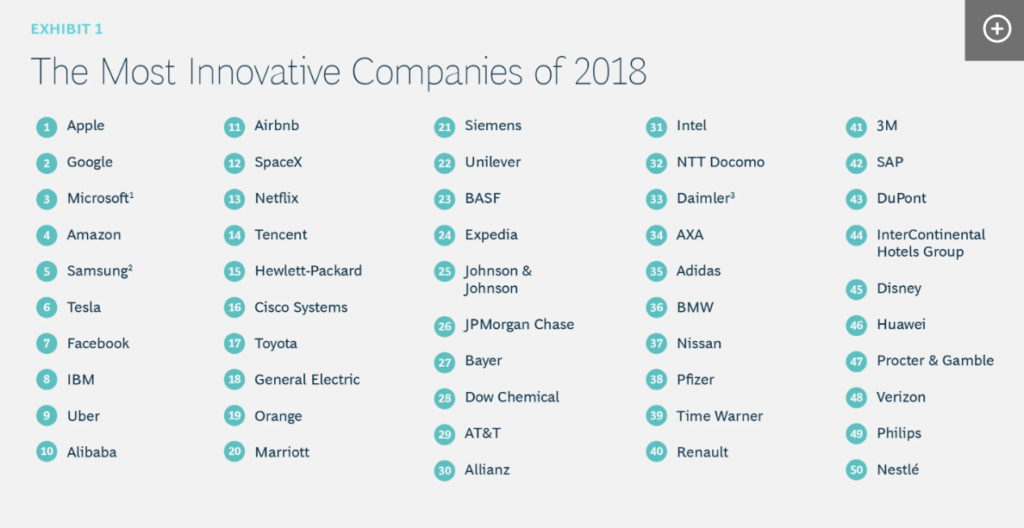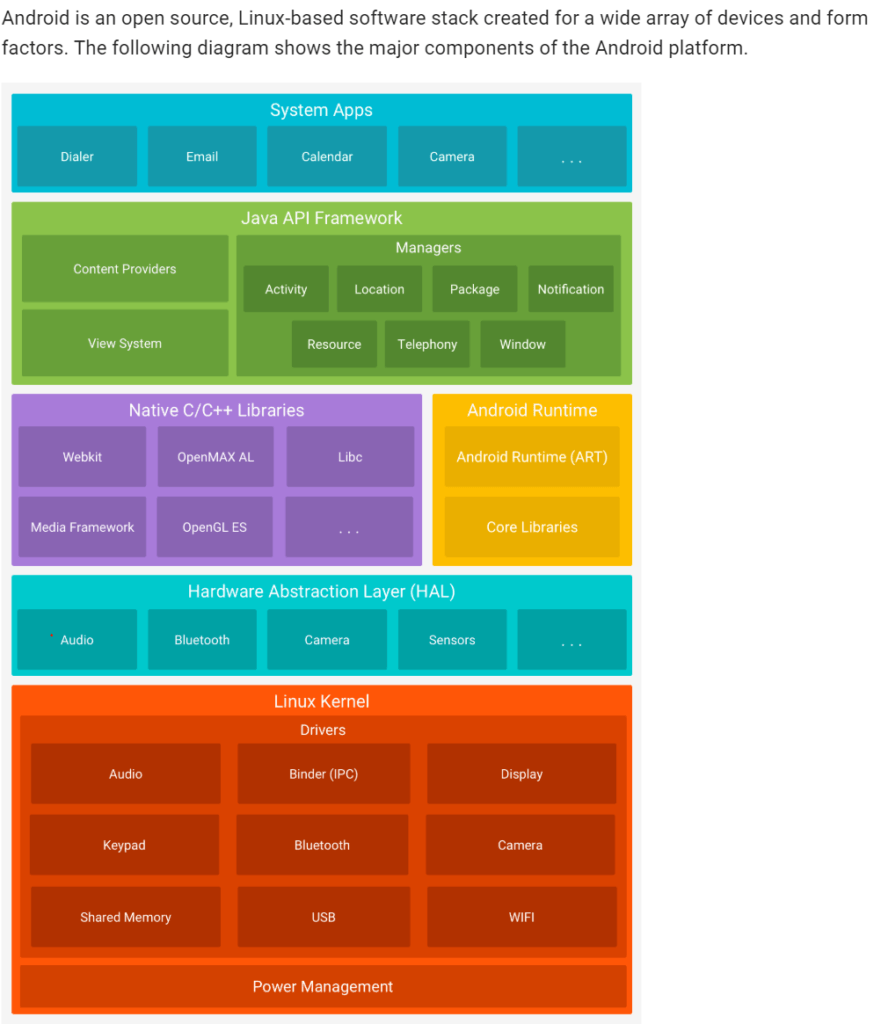Android, Not Just an Operating System

With over 2 billion monthly active users in 2017, Android is the largest mobile operating system in the world.
But far beyond that, Google’s Android has managed to become one of the most innovative platforms worldwide.
Android is the largest mobile operating system in the world. Moreover, as part of Google, Android was able to become one the world’s top innovative platforms. (1,2)

Android was built based on a number of design principles which allowed it to expand to numerous use-cases. Among these were: being customer centric both in B2B and B2C aspects, agile operating when making resource allocation decisions with short implementation & response times and lastly, empowering yet monitoring performance & cross functional collaborations. [6]
Since then, Android made several key decisions that enabled it to become the innovation platform we know today.
- Android as a digital distribution platform- Android is an open source operating system – free to everyone and anyone. Android captured and enabled further innovation in a wide range of products and use cases that are not limited to operating systems – rather they include software applications, internet access, audio & video capabilities, Qwerty and more.
- Android as a developer platform- Android’s created value to developers and to date, paid over seven billion dollars to developers and content providers who contributed to, now over million, Google Play apps.
- Android as an integration platform- Android recognized that a couple of their apps compete with those of other companies, therefore decided to include pre-installed apps on some of its mobile devices such as from Facebook, Microsoft and others. [7]
These days, Android stack can be considered a form of supply chain and Google, as its key system integrator.

- Different screen types and sizes- Android’s platform provides optimization to alternative dimensions and layouts.
- Multitasking support- Android’s platform provides unique handling of memory allocation (one can be on a call and play games at the same time).
- Storage- Android’s platform provides multiple storage options for users to chose from based on their specific requirements. These include: internal storage, external storage, shared preferences, SQL lite data base and a network connection. [9]

Android monetizes by offering high standard smartphone software for cheap to various clients. Then, by gaining market share ( 80% to date) it integrates Google search and mobile applications like Gmail, Maps, and Drive. Android also earns money from apps purchased on Google Play. In addition, it prevents mobile phone makers to request a high revenue share from searches on their smartphone device. [11-12]
What’s in store for Android?
Android’s innovation did not come to an end. Looking into the future, Android seeks to continue being the market leader. Among Android’s investments are a virtual assistant, an A.I centric ecosystem, a creation more multi functional devices and more. [13]
With these trends on hand, it seams Android will remain the top innovation platform we know today also in the years to come.
Sources:
- “Apple Now Has 1.3 Billion Active Devices Worldwide”. 2019. Macrumors.Com. https://www.macrumors.com/2018/02/01/apple-now-has-1-3-billion-active-devices-worldwide/.
- “Google Announces Over 2 Billion Monthly Active Devices On Android”. 2019. The Verge. https://www.theverge.com/2017/5/17/15654454/android-reaches-2-billion-monthly-active-users.
- “Most Innovative Companies 2018 – Chapter 1: Innovation In 2018”. 2019. Https://Www.Bcg.Com. https://www.bcg.com/en-us/publications/2018/most-innovative-companies-2018-innovation.aspx.
- Pothitos, Adam. 2019. “The History Of The Smartphone – Mobile Industry Review”. Mobile Industry Review. http://www.mobileindustryreview.com/2016/10/the-history-of-the-smartphone.html.
- “Android (Operating System)”. 2019. En.Wikipedia.Org. https://en.wikipedia.org/wiki/Android_(operating_system).
- “Most Innovative Companies 2018 – Chapter 4: Organizing For Digital Innovation”. 2019. Https://Www.Bcg.Com. https://www.bcg.com/publications/2018/most-innovative-companies-2018-organizing-digital.aspx.
- 2019. Blog. 7. https://blog.google/products/android/android-has-helped-create-more-choice/.
- 2019. Cdn.Questromworld.Bu.Edu. https://cdn.questromworld.bu.edu/platformstrategy/files/2018/07/Platform-vs-Non-Platform-Performance-Working-Paper-v2.pdf.
- astoria0128. 2019. “What’s So Special In Android Platform For Developers?”. Slideshare.Net. https://www.slideshare.net/astoria0128/whats-special-in-android-platform-26537003.
- “Platform Architecture | Android Developers”. 2019. Android Developers. https://developer.android.com/guide/platform/.
- 2019. https://www.quora.com/How-much-does-Google-pay-per-advertising-of-an-Android-app.
- “How Does Google Make Money From Android?”. 2019. Android Authority. https://www.androidauthority.com/how-does-google-make-money-from-android-669008/.
- Raphael, JR. 2019. “7 Android Trends To Watch In 2019”. Computerworld. https://www.computerworld.com/article/3331896/android/android-trends-2019.html.



NR, a very interesting take on the the innovation powerhouse that Android has become. It is clear that Android has a massive market that still has room to grow. The interesting question to me is their value capture strategy, it obviously relies very highly on cross monetization through google’s own applications like search, gmail, and maps (and to a much lesser extend the revenue share of Google Play purchases). While these apps come pre-loaded on most Android phones given the open nature of the platform there is nothing stopping users from choosing to not use these apps and replace them with competitors. Therefore while Android is indeed a very powerful and innovative platform its current ability to capture value rests on Google’s ability to continue its market leadership through search, gmail, maps, etc. While I would never bet against Google’s abilities in any of these three arenas I find myself wondering if anything new they are investing in could lead to the same level of value capture should the risk I have laid out come to fruition or what other strategies Google pursue to diversify the risk of Android from its other business lines.
NR, like you, I have always been a fan of the Android operating system and how it was designed. In my Strategy and Tech. class last semester, I explored a new initiative that Android is working on called Android Automotive (https://www.androidpolice.com/2018/05/14/google-full-speed-ahead-android-automotive-not-much-android-auto/). Many may already be familiar with Google’s Android Auto product, which has dominated the mobile phone projection market for in-vehicle infotainment. Android Auto was Google’s first foray into the connected car space and is now supported in over 400 car models . The app, which first needs to be downloaded from the Google Play app store, enables those using an Android-powered phone to project the contents of their phone onto a vehicle’s screen through an USB cord. The service is essentially just a repackaging of the mobile phone experience with the appropriate display size and power source needed to run on the display screen of a vehicle. Now, however, Android is tackling the OS, which is the entire brains of the vehicle and support two primary functionalities– infotainment, which encapsulates entertainment, navigation, and other compatible vehicle-specific apps, and vehicle control, which deal with safety features and the management of climate controls, locks, and windows. I’m quite bullish on Android’s success here, especially given all the unique propositions you mentioned above, though I wonder if being open-source in a software that controls functions relating to human safety will set them back?
I looked into market share and it looks like Android has grown considerably (https://www-statista-com.ezp-prod1.hul.harvard.edu/statistics/216420/global-market-share-forecast-of-smartphone-operating-systems/). I wonder how much of it has to do with economic affordability and how much is due to Android features being superior to its competitors. As the middle class continues to grow throughout the world and hence the spending power, I almost think, there would be more people switching away from Android to say iOS than people switching the other way around.
Thank you for the post!
Honestly, Android is moving away from the free model. For example, Android TV requires a license that is very expensive from Google, and now Google itself doesn’t come with Play Store if you don’t get proper licensing (which is difficult and expensive). They made it easy to adopt in the beginning and then started pulling the plug. Products like the G-Box is the best Android tv box since 2011, but now you can’t even get it to run most of the apps today because of the changes Google has made.